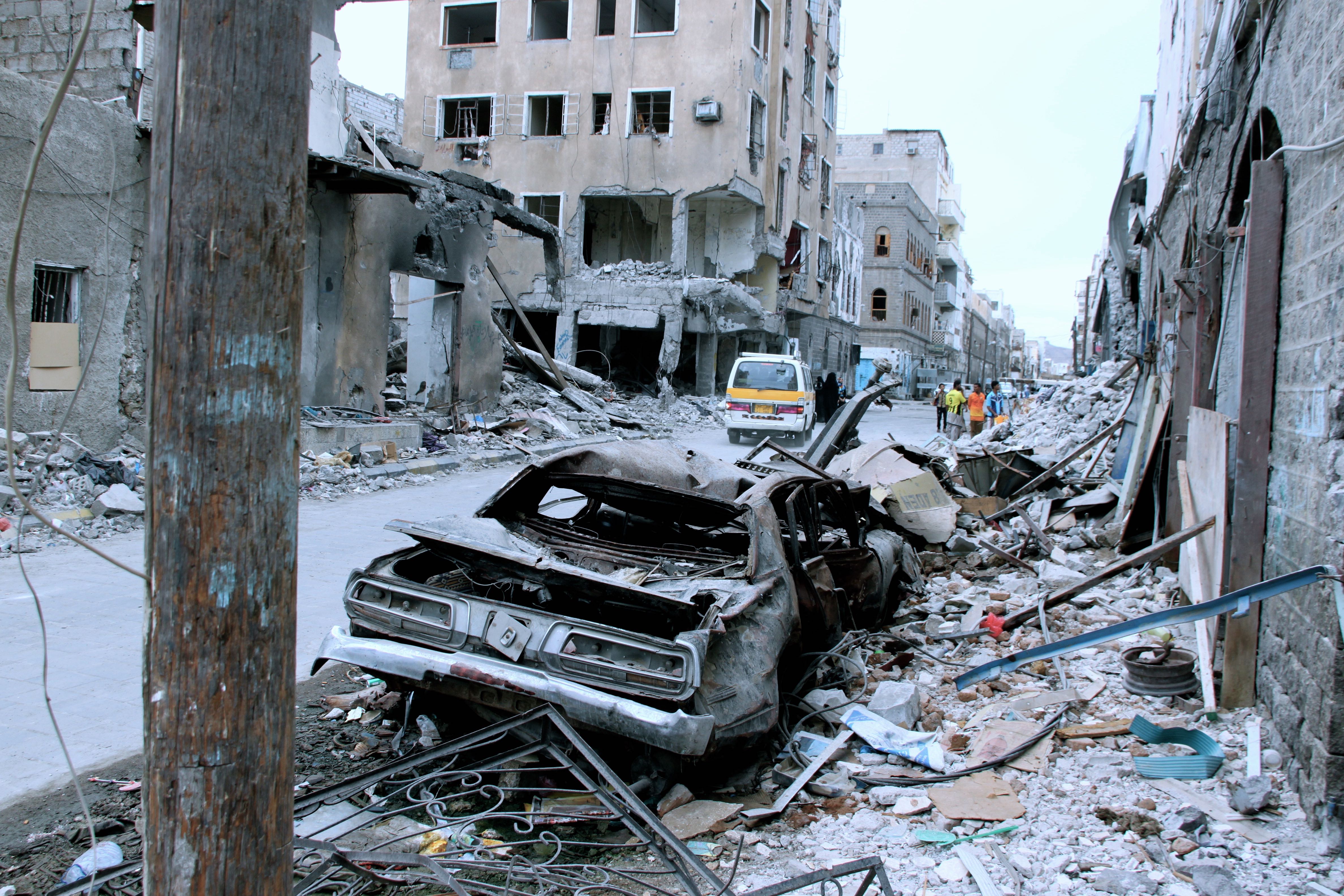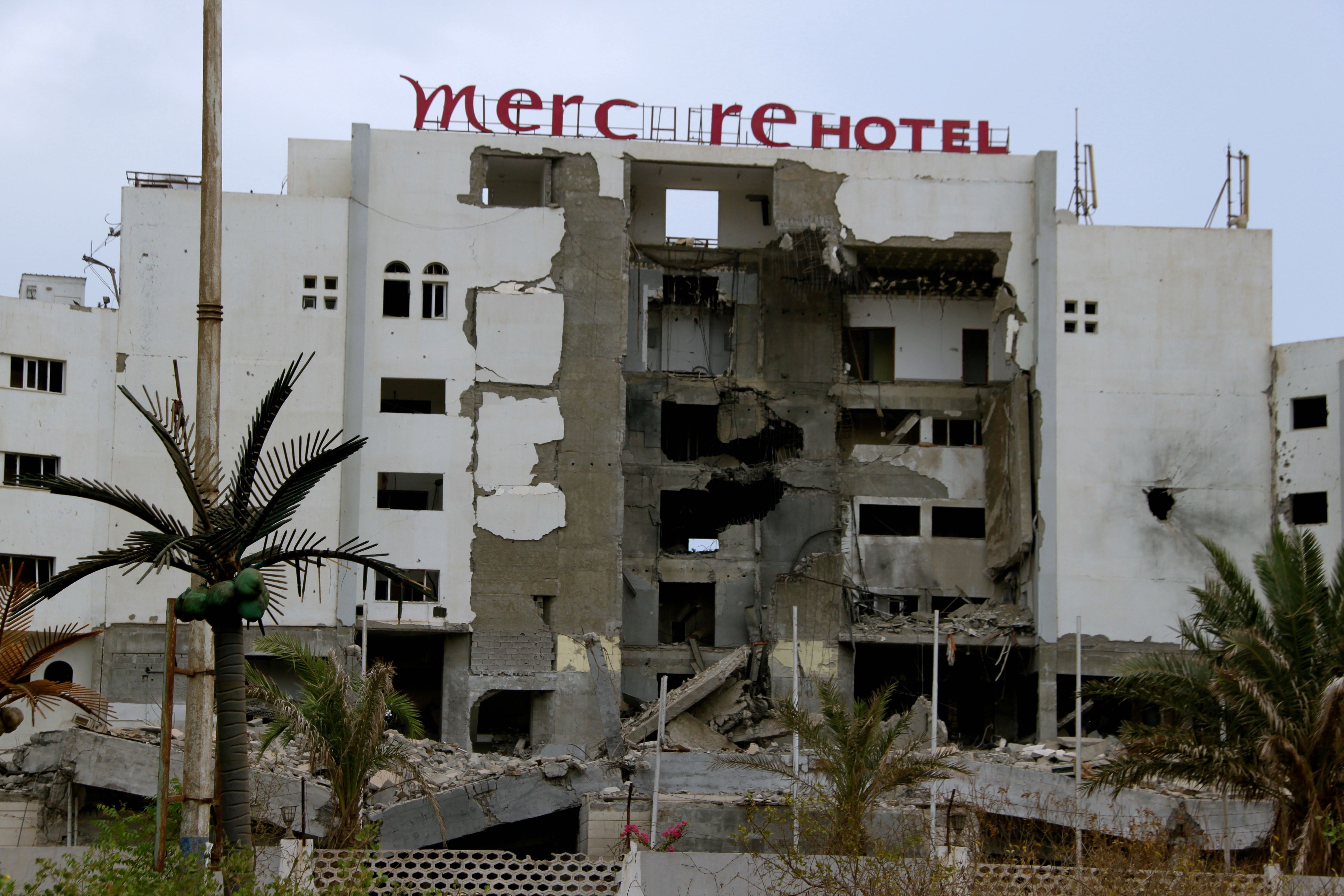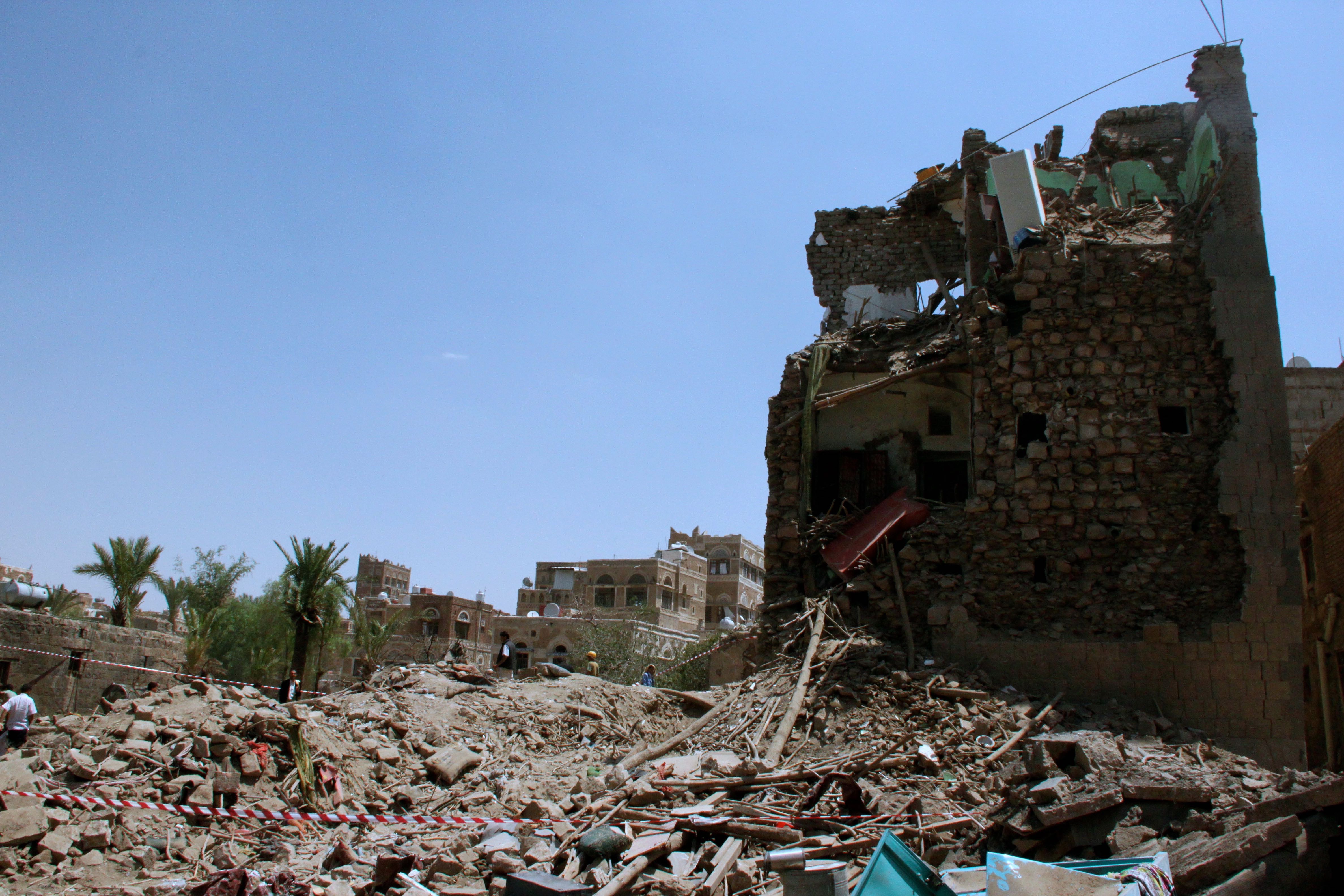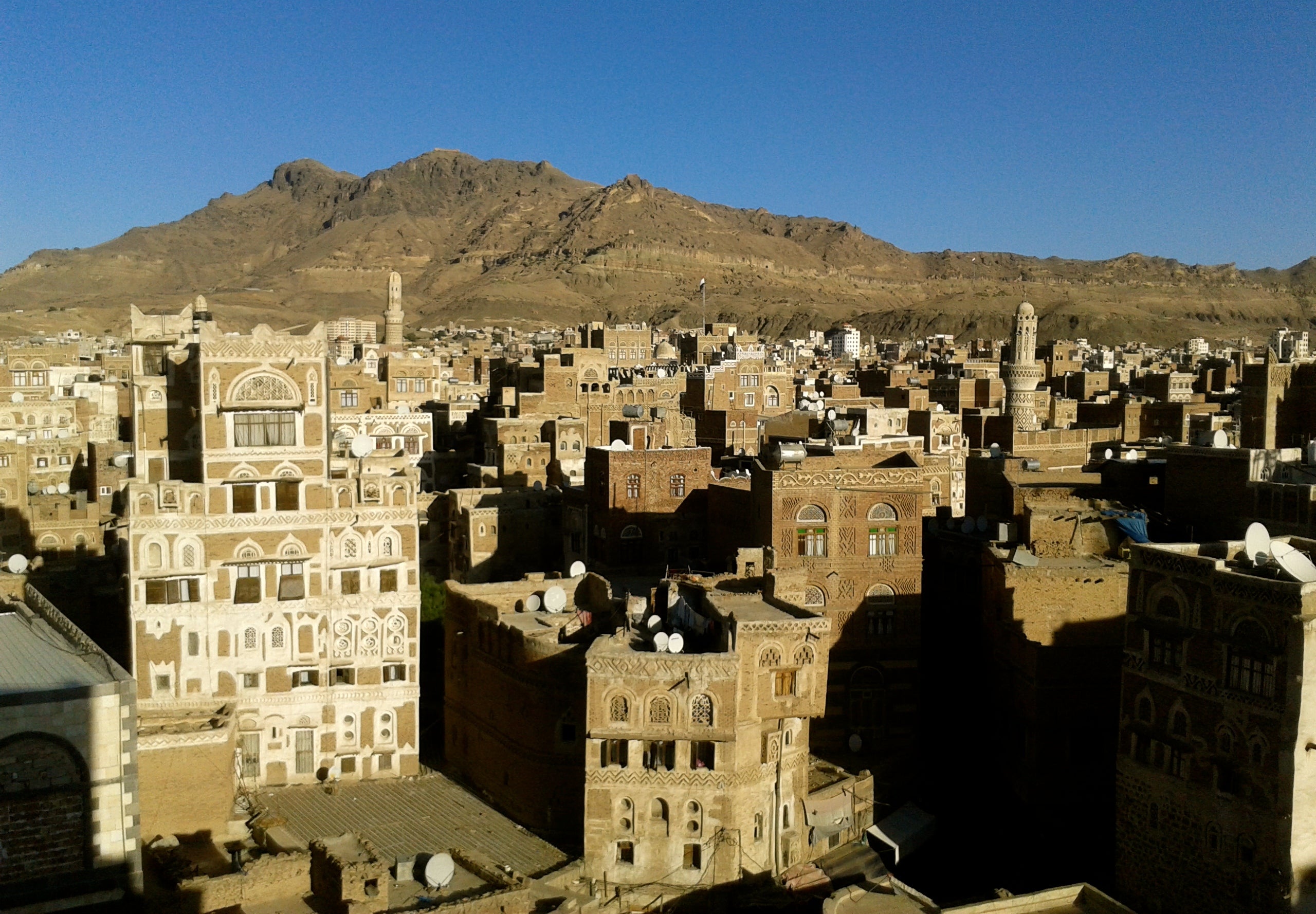Just because Yemen isn’t in the news doesn’t mean people aren’t dying
Coverage of the war in Yemen continues to be impacted by various factors, including the disruption of internet services and the hostile environment for journalists, writes Charlene Rodrigues


Since late January this year, the Saudi-led coalition has intensified its bombing campaign in Yemen. The Iran-backed Houthis in return have amplified their attacks on the skyscraper nations of UAE and Saudi Arabia. The conflict, entering its eighth year next month, is far from abating.
Yemen – once an ancient cradle of civilisation which controlled the lucrative spice trade in antiquity – has in the last decade become synonymous with the “worst humanitarian crisis” in the world, and known as “The Forgotten War”.
As of 2021, the UN estimates that 377,000 people have died in Yemen from hunger, bombs and torture, as well as preventable and unpreventable disease. As many as 70 per cent of the dead are children under the aged of five. Local activists warn that the actual numbers could be much higher.
Bombings targeting schools, hospitals, markets, wedding parties and prisons over the years have become routinely common; sometimes reported, other times not. But just because some incidents go unreported, it doesn’t mean people are not dying.
News coverage of the conflict since 2015 has fluctuated. But interest in Yemen was low even before 2014, restricted to Al Qaeda-led storylines. A quick search in Google trends in the past year shows widespread apathy to Yemen in comparison to Afghanistan and Syria. Search interest in Yemen has dropped – 75 per cent a month after the war began in March 2015 – and has stayed there ever since.
In the UK, media attention has invariably shifted to more verifiable stories in recent weeks: the Ukraine crisis, Johnson’s Partygate hullabaloo, Prince Andrew’s lawsuit and Europe’s energy crisis.
Other factors, too, surely contribute to the underreporting of the conflict in Yemen. From 21 January to 25 January this year, airstrikes disrupted the internet services in the Red Sea port city of Hodeidah, preventing an entire country from telling the world about the deafening bombardment they are living under.

In the aftermath of the Saudi-led coalition airstrike on Yemen’s Sa’ada City Remand Prison, Médecins Sans Frontières (MSF) issued a statement saying “at least 82 people were killed”. Then, its head of mission in Yemen, Ahmed Mahat, wrote: “There are many bodies still at the scene of the airstrike, many missing people. It is impossible to know how many people have been killed.”
The Iran-backed Houthis are also infamous for weaponising the internet to advance their war agenda – a tactic not dissimilar to Yemen’s authoritarian president Ali Abdullah Saleh, who ruled Yemen for 33 years until he was forced out during the 2011 uprising.
Since the beginning of the Saudi-led coalition bombing in Yemen in March 2015, the UK has been married to Yemen’s conflict, supplying arms and technical assistance to the Saudi-led coalition.
The UK has sold more than £2bn worth of military equipment and services to Saudi Arabia since 2015, three times higher than the £6.7bn worth of arms sales published by the Department of International Trade in the same period. The US has been equally culpable.
And as the war dragged on, the facts have been twisted and turned and altogether buried. Well-meaning US democrats like Bernie Sanders, Ro Khanna and Chris Murphy, key in influencing the house to pass a bill to limit US involvement in the war in Yemen (later vetoed by Trump) have, in the same manner, failed to condemn and highlight the Iranian-backed Houthi militia’s crimes.
The environment for journalists to carry out their work in Houthi-run areas, as well as those controlled by the government and the UAE-backed Southern Transitional Council, is both punishing and unpredictable. Journalists – local and foreign – have been arbitrarily detained, forcibly disappeared, persecuted, and killed.
In July 2014, I was in Yemen studying Arabic, when the Houthis encircled and then seized the capital. A year later I was detained for no reason other than having a camera while documenting the aftermath of a Saudi coalition airstrike in the UNESCO-listed Fulayhi residential neighbourhood in September 2015.

My basic knowledge of Arabic, a few quips on Bollywood, and a confession to the Houthis about my belief in God – a safety tip given to me by a Yemeni local shopkeeper – enabled me to wriggle out of a difficult situation. A week later, I left the country due to the constant harassment I experienced. But this is not an option for many journalists, especially Yemenis, who are trying to keep the truth alive.
Former colleague and friend, Ali Mohsen Abu Lahoum from Yemen Times radio was arrested at his home in Najran on the border of Saudi Arabia in August 2021, and is serving 15 years in a Saudi prison without a fair trial.
US journalist Casey Coombs detailed his three weeks in a Houthi prison in 2015. “My body remembers what my mind cannot,” he wrote in a personal essay. And as I write this, four journalists who have been tortured since 2015, face a death penalty for their reporting.
According to the New York-based Committee to Protect Journalists (CPJ), at least 19 journalists have been killed in Yemen since 2014. In November last year, a car bomb struck the vehicle carrying a heavily pregnant journalist Rasha Abdallah Alharazy and her husband, Mahmoud Alotmei, also a reporter. Al Harazy was on her way to the hospital to give birth.
To keep up to speed with all the latest opinions and comment, sign up to our free weekly Voices Dispatches newsletter by clicking here
Impartiality in Yemen’s media coverage is rare because different parties to the conflict control the media. A visa issued by the Yemeni Embassy in London is unwelcome in Houthi-run areas – and vice versa.
Women’s rights and freedoms gradually fell and then were diminished altogether in Houthi-run areas. Fashion came under close scrutiny, men and women were prevented from socialising in cafes. Women activists, writers, former ministers and professionals were forced to flee the country for fear of their security.

In July last year, I spoke to former female detainees released from Houthi run detention centres who were tortured, sexually abused and forced into sex work. Thousands remain captive, including Yemeni model Entesar Al Hammadi – her physical and mental condition unknown.
Equally devastated by the silence are the Yemeni diaspora, its writers, academics and artists pushed into exile, stifled in their thoughts, neither here nor there; watching their country burn from afar. Still, they fight the good fight by participating in news discussions, meeting UN and EU government officials, educating people on the internecine war and humanitarian crisis that looms, through their work.
Dr Abdulkader Alguneid, an outspoken figure in Yemeni politics, released Prison Time – an entertaining and gripping read of his 300 days in a Houthi prison with Al Qaeda militants and US hostages, amidst the chaos of war.
Similarly, Murad Subay, an award-winning artist, uses stencils and spray paint to create haunting images that capture the impact of war. He has also met with European leaders and presented them with his artworks, in the hope that governments will reverse their laws on arms sales.
But the deafening silence and limp statements from politicians and peacekeepers is what most Yemenis find infuriating, as it hinders their ability to find a sustainable and long-term peace solution. We need to do better – all of us.
Charlene Rodrigues has been reporting on the Yemen conflict since 2014
Join our commenting forum
Join thought-provoking conversations, follow other Independent readers and see their replies
Comments
Bookmark popover
Removed from bookmarks